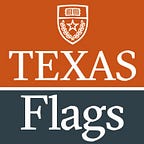Ethical Education in Action
In both the fall and spring semesters, undergraduates at the University of Texas at Austin get the chance to tackle the question of “what leads good people to make poor, unethical choices” in “Ethics, Corporate Social Responsibility, and Service Learning”, an upper-division elective course which carries both a Cultural Diversity in the US and an Ethics flag, making it the only course in the McCombs School of Business to do so — a fact which Professor Karen M. Landolt, JD, is especially proud. The purpose of the Cultural Diversity in the United States Flag is for students to explore in depth the beliefs and practices of an underrepresented group or groups subject to persistent marginalization. The Ethics Flag teaches students to identify ethical issues and to apply ethical reasoning to real-world situations.
Prof. Landolt’s course explores “real-life ethical dilemmas, our decision-making processes, and ideal behavior for the future.” Not only are students presented with various frameworks for ethical decision-making in a classroom setting, but through the course’s Academic Service Learning component, students apply these frameworks to real world problems impacting underserved communities. In the past, her students have worked with organizations such as (LGBTQIA, Asian-American, Black, Hispanic community groups at local chambers of commerce, River City Youth Foundation, and City of Austin programs to benefit underserved groups, Out Youth, and Casa Marinella.
The course was both created and taught by Karen M. Landolt, JD, an Assistant Professor of Instruction in Computer Science and Business, Government, & Society. Driven by a passion for behavioral ethics, over the past seven years, Professor Landolt’s remains fascinated with human decision making and is devoted to fostering students who are “highly effective, ethical decision-makers and engaged service-oriented members of their community.”
“My focus is how we can make our students better ethical decision-makers [and] give them the tools that they need, in order to make society better,” Professor Landolt stated.
Professor Landolt’s background as a lawyer made her astutely aware of a major difference between the legal field and the worlds of business and computer science: a lack of a centralized board of ethics. These students are “literally changing society with every advance in technology that they make,” Landolt stated. “There is no systematic board or organization that requires them to consider the ethical implications.” As such, Professor Landolt sees it as her duty to prepare her students to think before they act.
The course materials incorporate Dr. Mary C. Gentile’s Giving Voices to Values, a practical, research-driven approach to understanding one’s own values and knowing how to effectively act upon them, even in the face of opposition. Professor Landolt supplements her course with ample hypothetical and real-world examples and thought experiments, all designed to encourage students to practice and pre-script their responses to potentially similar situations in their own lives.
Students agree with Professor Landolt’s approach. One student, who took the course in Spring 2017, remarked that the course “made me evaluate how I approached ethical issues in my life.” Another, who took the class the following Fall, commented that Professor Landolt’s inclusion of real-life situational examples were “really helpful [in] model[ing] a method to apply in real-life day-to-day situations.” A third student, in an unprompted email to Professor Landolt, expressed a similar gratitude towards the personal growth and understanding she had attained because of her experiences with her community partner in the Spring 2020 semester.
In addition to teaching students how to make thoughtful, ethical decisions, “Ethics, Corporate Social Responsibility, and Service Learning” aims to help students better address questions of race, class, and socio-economic status through awareness of the double-edged nature of heuristics — mental short-cuts which help us make quick decisions, but also carry irrational stereotypes and implicit biases.
Much of this is done through the course’s Service Learning component, where students spend part of their semester learning about various marginalized groups in the Greater Austin area and then partnering with a local organization that serves those groups. While the specific nature of each project varies by organization, Professor Landolt states that this process “builds empathy for the marginalized group that they’re focused on” to better understand “what the needs of each of [these] groups are.” The specific projects vary according to the specific needs of each organization, but are designed to get students to work together in a group and to understand and address the needs of their chosen marginalized community. Professor Landolt has been told by many former students that this Service Learning Project is one of the most meaningful experiences they have had in their undergraduate educational experiences.
Professor Landolt said she wants her students to walk away from the course believing that, in the words of Dr. Dolly Chugh, thinking of themselves as “good-ish” people. “Because if I’m a good-ish person, that means I could make a mistake.” That self-realization of fallibility, she said, will encourage one to stop and think through their actions, rather than just blindly believing that your actions are always right and just.
Citing Dr. Chugh, Professor Landolt states that if you think of yourself as a good-ish person, that means you can always be better. That also means you always need to watch out for pitfalls. The way to guard against that is to have a good ethical decision-making model to use.
…
If you would like to know more about the Flags program at UT Austin, you can find more information at the Center for the Skills & Experience Flags website.
If you are an instructor at UT, you can find resources to help teach Cultural Diversity in the United States or Ethics Flags through Canvas. The Center for the Skills & Experience Flags offers individual instructor consultations, Flag-related resources, and instructor development workshops for all Flag content areas.
